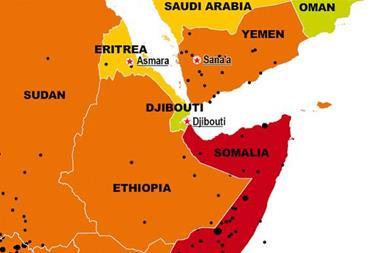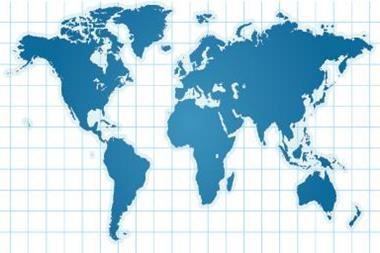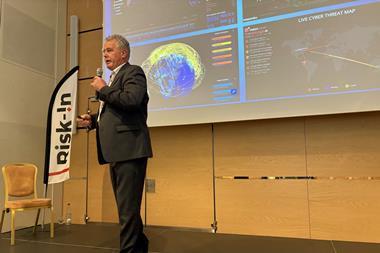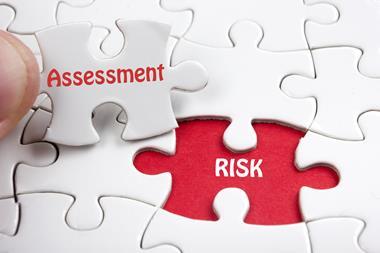The financial crisis has drawn fresh attention to the impact of financial crimes, says Anthony Skinner
The Obama administration’s creation of a new task force to crack down on financial fraud on 17 November has drawn fresh attention to the impact of the financial crisis on financial crimes. The move comes in response to the mortgage scams and large Wall Street trading scams that have become associated with the economic and financial crisis in the US. The creation of the task force also highlights the increased vulnerability faced by companies across the world in the crisis and post-crisis era to fraud and financial crimes, which are often committed by organised crime groups.
The US administration, for its part, is looking to tighten the regulatory framework governing financial crime in the US. The establishment of the task force, mandated to investigate and prosecute financial crimes, comes at a time of huge public resentment against large Wall Street bonuses. It also comes at a time of continuous anger over the failure of securities regulators to prevent Wall Street investor Bernard Madoff from swindling clients and investors of US$65bn in a decades-long scheme. Importantly, the new task force will replace one that was established under the Bush administration in 2002 as a result of the financial reporting scandal involving energy trading company Enron and accounting firm Arthur Andersen.
The establishment of the US’s anti-fraud task force coincides with broader concerns about financial crime in the world - including fraud and money laundering. Maplecroft’s November 2009 Report on global crime trends, entitled ‘Crime and Security Trends during the Recession and Recovery’, says that the financial crisis has increased the reputational risk for companies that outsource or subcontract their work around the world. Such entities may be involved in money laundering activities and other financial crimes, such as fraud. The vulnerability of financial systems, due to the dearth of liquidity, may create more opportunities for money laundering, allowing organised criminal groups to increase their penetration of the financial system.
Antonio Maria Costa, the executive director of the United Nations Office on Drugs and Crime supports the assessment. In July 2009 he stated that until the onset of the financial crisis in 2008, the banking system “has been very active and clean,” thereby forcing organised crime groups to engage in cash transactions. Costa went on to say that “you have on the one hand supply, resources and cash from organised crime” and banks that are illiquid and striving for cash. “Well that is really a license for organised crime to penetrate into the financial system.” Costa also said the problem was growing in Europe and South America.
A number of European countries are of concern when it comes to financial crime. In its March 2009 report on Money Laundering and Financial Crimes, the US State Department classifies Hungary, Poland, the Czech Republic, Slovakia, Bosnia and Herzegovina and Slovakia as ‘jurisdictions of concern’, equivalent to a medium risk category (out of three), where financial institutions may engage in currency transactions involving proceeds from crime. The risk in these countries derives, in no small part, from their transition to a market economy and weaknesses within the financial, legal and law enforcement systems of these countries. The US State Department also lists Indonesia, Ukraine, Russia and Zimbabwe as ‘jurisdictions of primary concern’ (the highest risk), citing gaps in financial regulation. Cash-based economies, a lack of law enforcement, and high corruption also account for the risk of money laundering in these countries. It is notable in this context that Russia, Ukraine and Zimbabwe rank as ‘extreme risk’ countries for corruption and a lack of transparency in Maplecroft’s Global Map of Corruption and Transparency. Indonesia, by comparison, ranks as a ‘high risk’ country.
The risk of increased financial crime is not only related to the tendency for banks to reduce their screening of potential and existing clients because of their need for liquidity. It is also likely to be related to the fact that the recession has led to an increased number of unemployed financial and IT professions. In order to make ends meet, these individuals may consider engaging in financial crime independently or as part of organised crime groups. In its OCTA 2009 report, Europol notes that “in general, it should be taken into consideration that some entrepreneurs struggling for survival on the market might become victims of organised crime, for example in the field of usury...thereby infiltrating the legitimate economy.” It goes on to say that “the possibility that some entrepreneurs in serious trouble might become more open to some sort of co-operation with organised crime groups cannot be discarded.” Businesses should therefore ensure that they carefully screen the partners with whom they engage.
Recent business surveys meantime reveal increased concerns amongst the business community over financial crime. PricewaterhouseCoopers (PwC), an accounting and business consulting firm released its '2009 Global Economic Crisis Survey' on 19 November – research which reflects on business perceptions on financial crime. The survey, which covers 3,000 senior executives in 54 countries between November 2008 and November 2009, reveals that 43% of respondents who reported fraud in the period believed there had been an increase in economic crime compared to the previous 12 months. Conversely, 63% of the surveyed said they had not changed their fraud risk assessment in the period. Worryingly, a third of respondents reported that they had suffered at least one economic crime in the past year. These incidents prevailed mostly in developing and emerging countries (such as Russia) and in the financial services and communications industries. They were also prevalent in large companies and in state-owned companies.
The risk of financial crime for business is likely to remain elevated for 2009 and 2010. This is because many governments and businesses around the world have either maintained or cut expenditure on crime-prevention measures as a result of the economic crisis. As such, business executives should play a more active role in combating financial crime and be aware that the risk of a loss in company revenue and intellectual property is likely to persist. They must also be aware of the financial and reputational risk that they face in their supply chains and through association with subcontractors who may have ties with organised crime. Companies will therefore need to ensure that they maintain detailed and consistent intelligence to monitor and mitigate risk in countries where financial and other crime levels are higher.
Anthony Skinner is a Principal Analyst at global risks specialist, Maplecroft
.


















